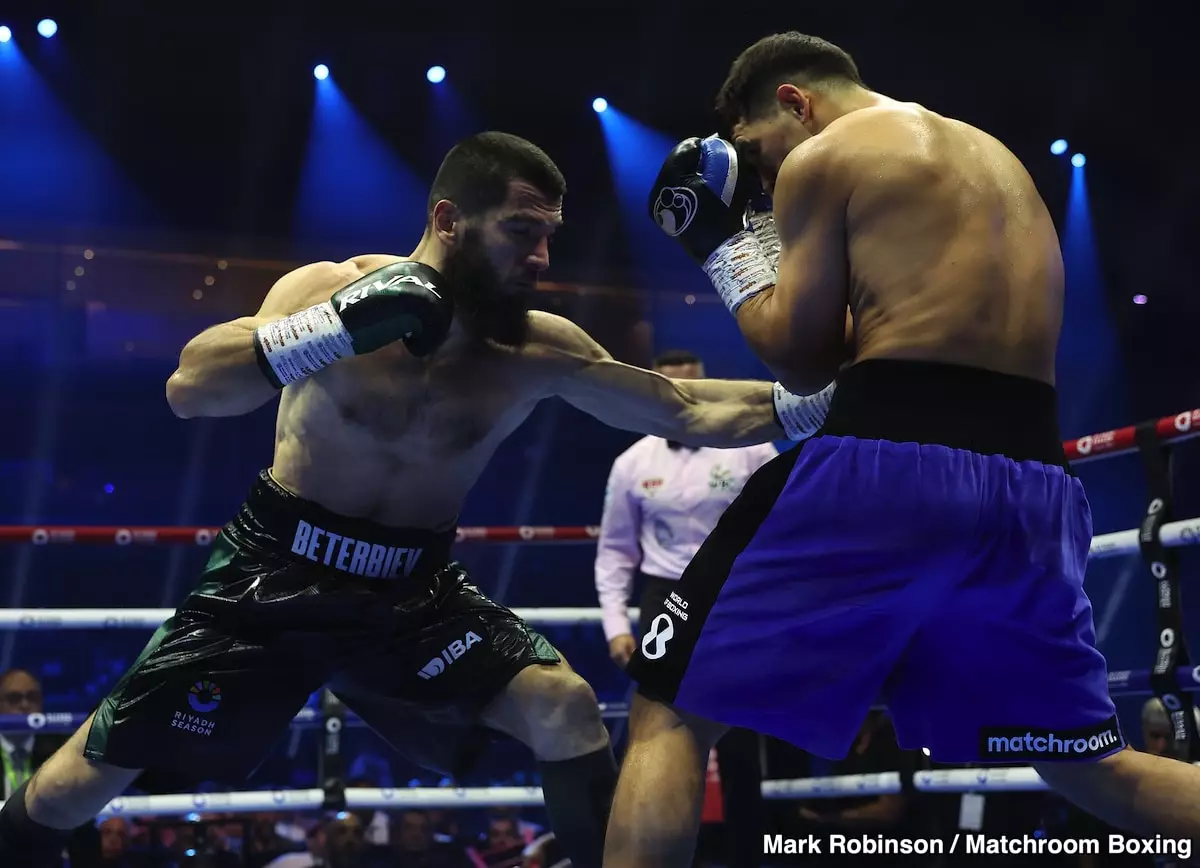In the competitive arena of boxing, fighters often find themselves weighing their options strategically—not just in training, but in the timing of their bouts against formidable opponents. Sergio Mora’s recent comments about David Benavidez’s potential fight with Artur Beterbiev underscore this tactical mindset. Mora advocates for Benavidez to let time work in his favor—essentially waiting for Beterbiev to age out before stepping into the ring. This premise isn’t without historical precedent; many boxers have chosen to face their opponents later in their careers when age may have dulled their edge.
The notion of “aging out” resonates deeply within the sport, especially considering that Beterbiev, who remains undefeated with 21 wins and 20 knockouts, is fast approaching his 40th birthday. While there is no definitive timeline when it comes to a boxer’s decline, it is generally accepted that fighters become less formidable with age. Waiting for such a window could enhance Benavidez’s chances of securing victory. But this strategy begs a moral question: does it detract from the nobility of competition when a fighter intentionally seeks to benefit from their opponent’s decline?
Artur Beterbiev has made a name for himself as one of the most dangerous fighters in boxing today. Mora emphasizes the raw power and aggressive fighting style of Beterbiev, particularly highlighting his strength in close-range exchanges. There’s a reason many consider Beterbiev a “wrecking ball”; his technique and ferocity in the ring can intimidate even the toughest opponents. This reputation makes any matchup against him incredibly risky, especially for someone like Benavidez, who has ambitions of solidifying his legacy.
Mora’s reflections highlight a crucial point: immediate challenges posed by Beterbiev cannot be underestimated. Benavidez, currently the WBC interim light heavyweight champion, faces his own hurdles before he can even think about a matchup with Beterbiev. He needs to first secure a victory over David Morrell, another prominent name in the division. The conditional nature of such matchups emphasizes the constantly evolving landscape of boxing and its inherent unpredictability.
While some might view Benavidez’s potential wait as a cowardly tactic, it could also be interpreted as a shrewd business move. Fighters are increasingly aware of the financial implications, marketability, and legacy associated with each bout. Fading champions often come with diminished pay-per-view potential—there might be an incentive to wait for such opponents to decline for financial benefits rather than immediate glory in the ring.
However, the criticism that Mora offers regarding the ethics behind this waiting game cannot be ignored. There’s a distinction between strategic maneuvering and outright avoidance of competition. Boxing aficionados relish pairings that reflect pure skill and courage. Waiting until an opponent’s career is in its twilight can lead to accusations of cowardice or disingenuous competition.
As boxing fans eagerly anticipate the rematch between Beterbiev and Dmitry Bivol, whose prior fight has sparked endless debates, clarity concerning Benavidez’s path is essential. Should Beterbiev emerge victorious once more, the onus will be on Benavidez to not just be a contender but a worthy challenger, ready to take on the danger that comes with facing Beterbiev at any stage.
In the world of boxing, timing can be everything, and the decisions made today can have profound implications for the future. The discourse surrounding Benavidez’s next steps reflects a broader conversation about sportsmanship, legacy, and financial strategy. Ultimately, the question remains: when the time comes, will Benavidez seize the opportunity against a champion like Beterbiev, or will he be merely a player in the game of preserving his own career trajectory? Only time will tell.


Leave a Reply